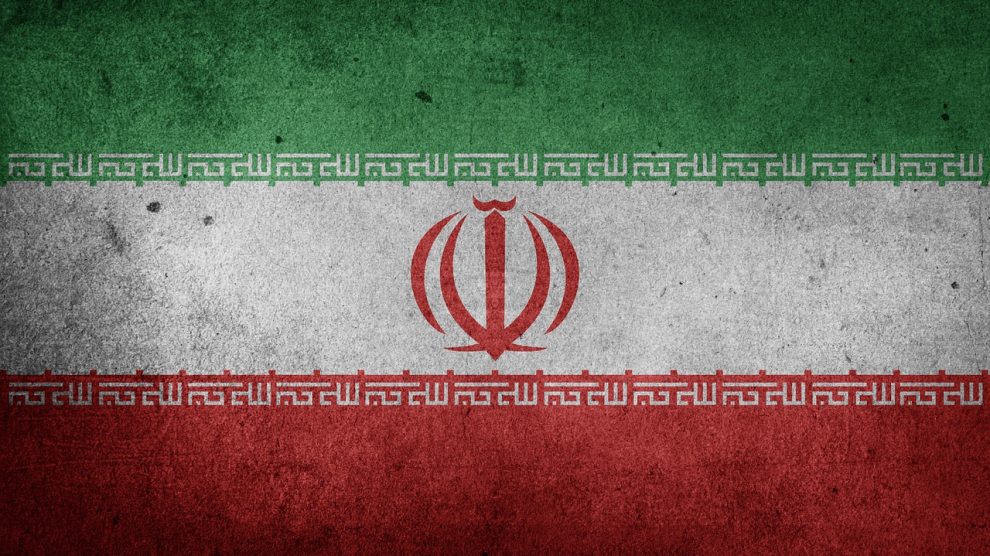The Society for Worldwide Inter-bank Financial Telecommunication or SWIFT as it’s more commonly known, has shut Iran out of it’s inter-bank financial messaging system. This comes as a consequence of a new round of sanctions being driven through by the United States. Iran has been in the process of introducing a state-backed cryptocurrency. This development may just be the catalyst that motivates the Islamic Republic to speed up that initiative.
In the first round of sanctions which were enforced in May, SWIFT access was withdrawn from Iran’s commercial banks. These latest sanctions mean that the Iranian banking system in it’s entirety is locked out of the inter-bank messaging system.
The Iranian’s would have been aware that this measure was due to be applied. With that, it seems that they are advancing their cryptocurrency plans as a direct consequence. According to a local news report, the Informatics Services Corporation (ISC) – a sub-group of the Central Bank of Iran which has been working on the Iranian cryptocurrency project – claimed that it has in fact developed the crypto-rial. In an interview with the IBENA news agency, the CEO of ISC, Seyyed Abotaleb Najafi, said that the national cryptocurrency has been developed and designed at the request of Iran’s central bank. He went on to say that the cryptocurrency – which will be issued by the central bank – may be used within a one to one or distributed framework without the interference of any other institution. This spells out the motivation on the part of the Iranians as they turn to cryptocurrency in a bid to circumvent sanctions.
Whilst the crypto-rial is close to the point of official use, Najafi acknowledged that it is currently being used on a pilot basis. Once the Central Bank of Iran provides it’s approval, the digital currency will then be used in the country’s banking system. The first phase of the roll out will see the country’s commercial banks use the digital currency for the purpose of acting as a payment instrument in transactions and the banking settlement process.
He stated:
“In order to realize innovation and create new infrastructure in our banking system, banks’ back end processes which is still in paper and traditional way should be changed and evolved.”
Notwithstanding that, Najafi was guarded in his comments, suggesting that Iran has a large gap to bridge with regard to the implementation of digital banking processes.
American stockbroker turned broadcaster and host of the Keiser Report, Max Keiser suggested that Iran faced a short term problem as a consequence of the move, which it should address by increasing reserves of gold and Bitcoin:
“Iran needs to get smart and start hoarding gold and Bitcoin if it wants to avoid the worst of the fallout. It is already, smartly, pursuing bilateral energy deals outside of the $USD, but it needs to add value to its currency with reserves of Gold and Bitcoin.”
He also claimed that the move would play it’s part in the demise of the U.S. dollar:
“The US puzzlingly seems to want to expedite global de-dollarization with its ill-advised weaponization of SWIFT. The impact this is having globally is clear. Russia and China are developing an alternative to SWIFT while also buying hundreds of tonnes of Gold as a means to escape the $USD chokehold. This in turn will accelerate global de-dollarization.”
The European’s are not happy with Iran’s exclusion from SWIFT. In recent weeks, European finance ministers had tried to convince the Trump administration that it should not exclude Iran from the inter-bank messaging system. Despite being Brussels-based, SWIFT sided with the Americans.
The U.S. are taking a hard line with National Security Adviser, John Bolton suggesting that “our intention is to squeeze them real hard”. . . “until the pips squeak.” The Europeans have responded by declaring the intention to establish a Special Purposes Vehicle (SPV) to circumvent the U.S. enforced ban.
Once Iran follows through with implementation of it’s national cryptocurrency, it will become the second country after Venezuela to officially launch a state backed cryptocurrency. Both countries have a similar issue in needing to evade sanctions and both seem to have concluded that cryptocurrency provides the best vehicle to do so.







